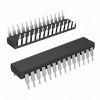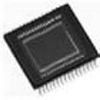LH521028A: Features: ` Fast Access Times: 15/17/20/25/35 ns` Wide Word (18-Bits) for: Improved Performance Reduced Component Count Nine-bit Byte for Parity` Transparent Address Latch` Reduced Loading on Addres...
floor Price/Ceiling Price
- Part Number:
- LH521028A
- Supply Ability:
- 5000
Price Break
- Qty
- 1~5000
- Unit Price
- Negotiable
- Processing time
- 15 Days
SeekIC Buyer Protection PLUS - newly updated for 2013!
- Escrow Protection.
- Guaranteed refunds.
- Secure payments.
- Learn more >>
Month Sales
268 Transactions
Payment Methods
All payment methods are secure and covered by SeekIC Buyer Protection PLUS.

 LH521028A Data Sheet
LH521028A Data Sheet







